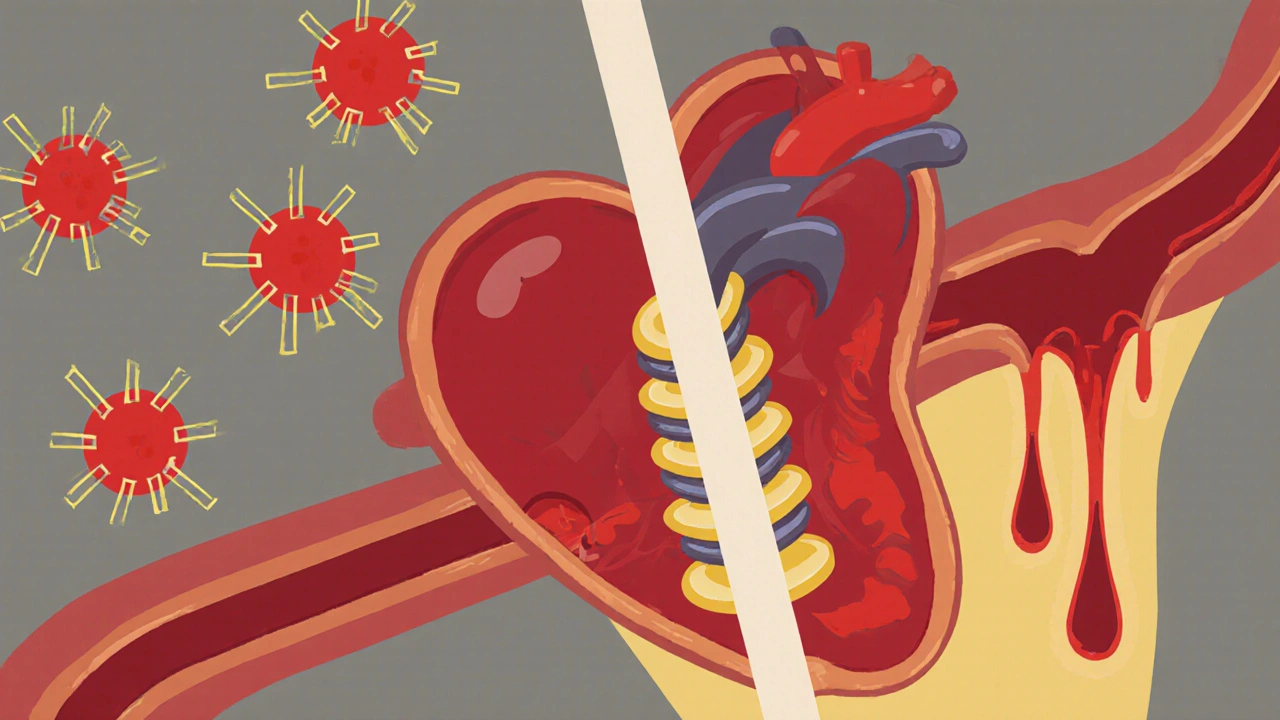Dual Antiplatelet Therapy: What It Is, How It Works, and What You Need to Know
When you’ve had a heart attack or stent placed, your doctor might recommend dual antiplatelet therapy, a treatment that combines two different antiplatelet drugs to stop blood clots from forming in arteries. Also known as DAPT, it’s not just a combo—it’s a critical strategy to keep your heart pumping after a major event. This isn’t something you take for fun or for general health. It’s a targeted, time-sensitive plan designed to prevent another clot from blocking an artery and causing another heart attack or stroke.
The two most common drugs in this combo are aspirin, a cheap, widely used drug that blocks platelets from sticking together and clopidogrel, a stronger, prescription-only pill that works on a different pathway to stop platelets from activating. Together, they hit platelets from two angles, making it much harder for dangerous clots to form. But it’s not magic. You have to take them exactly as prescribed, usually for at least a year after a stent, sometimes longer. Skip a dose, and your risk goes up fast. Take them too long without reason, and you risk bleeding—sometimes serious, even life-threatening.
It’s not just about the drugs. Timing matters. If you’re having surgery or need dental work, your doctor might tell you to pause one or both pills temporarily. That’s because these drugs thin your blood, and bleeding during procedures can be dangerous. But stopping them without guidance can be just as risky. It’s a tightrope walk, and your doctor is the one holding the balance. That’s why so many posts here focus on drug interactions—like how acid reducers can mess with clopidogrel’s absorption, or how antibiotics might interfere with blood thinners. These aren’t side notes. They’re part of the same safety puzzle.
You’ll also find posts about managing side effects, knowing when to call your doctor about bruising or black stools, and why some people need to switch from clopidogrel to another drug like ticagrelor if it’s not working. There’s no one-size-fits-all here. Genetics, diet, other meds, even how your body breaks down drugs can change what works for you. That’s why this collection includes real-world comparisons—like how warfarin interacts with antibiotics, or how generic meds can behave differently than brand names. If you’re on dual antiplatelet therapy, you’re not just taking pills. You’re managing a system. And the more you understand how each piece fits, the safer you’ll be.
Below, you’ll find practical guides on what to watch for, how to handle missed doses, which drugs to avoid, and how to talk to your doctor about your treatment. No fluff. Just what you need to stay protected without putting yourself at unnecessary risk.

Dual Antiplatelet Therapy: Managing Bleeding Side Effects
- Nov, 16 2025
- Daniel Remedios
- 13 Comments
Dual antiplatelet therapy prevents heart attacks after stents but increases bleeding risk. Learn how to manage side effects with shorter courses, drug switches, and personalized strategies backed by the latest trials.
